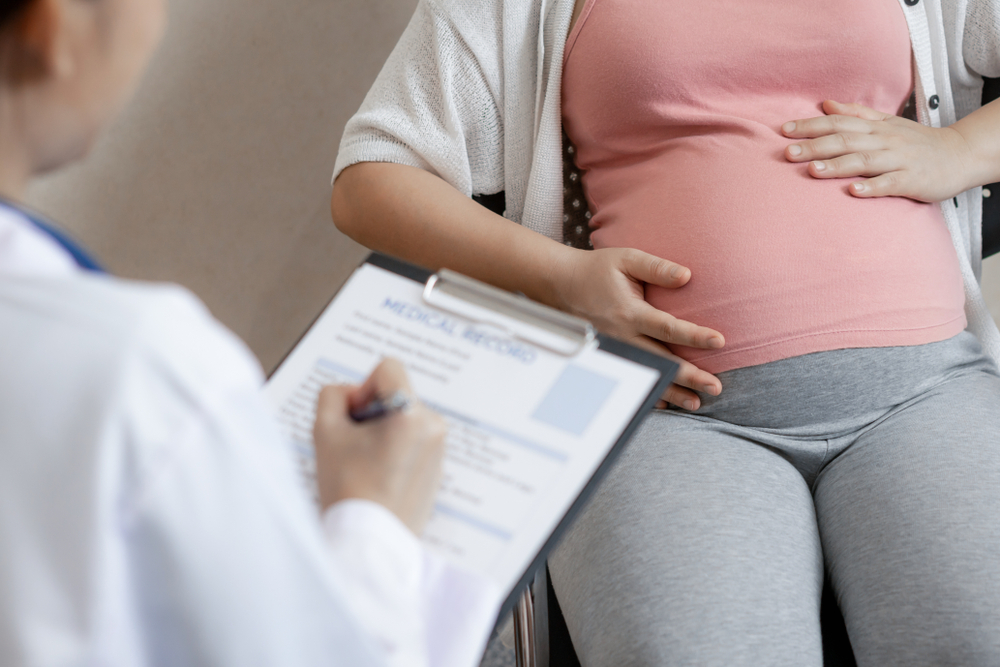Pregnancy is a beautiful and transformative journey, but it can also come with certain risks that require special attention and care. A high-risk pregnancy can be an overwhelming experience for expecting mothers and their loved ones.
Let’s discuss how it feels to have a high-risk pregnancy, the symptoms to watch out for, and importantly, provide expert insights to effectively deal with a high-risk pregnancy while ensuring a safe delivery.
Table of Contents
Understanding a High-Risk Pregnancy
Having a high-risk pregnancy can be an emotional rollercoaster. It’s important to acknowledge the feelings of anxiety, fear, and uncertainty that may arise.
Remember, you are not alone. Many women have successfully navigated through high-risk pregnancies and delivered healthy babies.
The key is to stay informed, seek support from a qualified gynecologist and take proactive steps to manage the situation.
Note: If you are in Lahore, you can consult Dr. Rabia Nosheen. She is the leading gynecological expert with 12 years of experience in the field.
Identifying Symptoms of a High-Risk Pregnancy!
Recognizing the symptoms associated with a high-risk pregnancy is crucial. While each woman’s experience may differ, there are some common signs to be mindful of:
Chronic Medical Conditions
If you have pre-existing medical conditions such as diabetes, hypertension, or autoimmune disorders, your pregnancy may be considered high-risk.
Suggested Read: Tips to Deal with Anxiety in Pregnancy!
Pregnancy-related Complications
Certain conditions that can arise during pregnancy, such as preeclampsia, gestational diabetes, or placenta previa, increase the risk level.
Multiple Pregnancies
Carrying twins, triplets, or more puts extra strain on the body and can result in a high-risk pregnancy.
Maternal age
Research shows that women younger than 18 or older than 35 face a higher likelihood of complications during pregnancy.
History of Pregnancy Complications
If you have previously experienced miscarriages, premature births, or stillbirths, your current pregnancy may be classified as high-risk.
Coping with a High-Risk Pregnancy!
Let’s explore how to cope with a high-risk pregnancy while ensuring your baby stays safe:
Educate Yourself
Gain a comprehensive understanding of your specific condition and its potential risks. Stay informed about your treatment options, potential complications, and necessary precautions.
Reliable sources such as medical professionals, reputable websites, and support groups can be valuable resources.
Lifestyle Adjustments
Adopting a healthy lifestyle is crucial for managing a high-risk pregnancy. This includes maintaining a balanced diet, regular exercise (as approved by your doctor), managing stress levels, and getting adequate rest.
Avoid smoking, alcohol, and illicit drugs as they can pose serious risks to both you and your baby.
Attend Regular Prenatal Check-ups
Ensure you attend all scheduled prenatal appointments to monitor your progress and address any concerns promptly.
Your healthcare team will conduct various tests and ultrasounds to assess your baby’s development and detect any potential issues early on.
Seek Emotional Support
Reach out to your partner, family, and friends for emotional support.
Joining support groups or online forums with other women going through high-risk pregnancies can provide you with a sense of community and comfort.
Remember, expressing your fears and concerns is essential for your mental well-being.
Follow your Doctor’s Recommendations
It’s crucial to adhere to your doctor’s advice and treatment plan. This may include taking prescribed medications, managing chronic conditions, or following specific dietary restrictions.
Regular communication with your gynecologist is vital for maintaining a healthy pregnancy.
Emergency Preparedness
Develop an emergency plan with your healthcare team.
Discuss warning signs that require immediate attention, such as severe abdominal pain, vaginal bleeding, or decreased fetal movement. Knowing when and where to seek help can make a significant difference in critical situations.
Safely Delivering Your Baby in a High-Risk Pregnancy!
When it comes to delivering your baby during a high-risk pregnancy, there are additional considerations to ensure the safety and well-being of both you and your child.
Here are some steps to follow:
Birth Plan Discussions
Collaborate with your healthcare team to develop a birth plan that accommodates your specific needs and addresses any potential complications.
Discuss options such as cesarean delivery or induction, which may be recommended in certain high-risk situations.
Suggested Read: How to Manage Pain After C-Section?
Hospital Selection
Choose a hospital equipped with a specialized neonatal intensive care unit (NICU) in case your baby requires immediate medical attention after birth.
Confirm that the hospital is experienced in handling high-risk pregnancies and has the necessary resources to provide comprehensive care.
Monitor Fetal Movement
Keep track of your baby’s movements daily and report any changes to your gynecologist.
Reduced fetal movement could be a warning sign, and immediate medical evaluation may be necessary.
Labor Support
Consider having a doula or a supportive birth partner present during labor. They can provide emotional encouragement, help you advocate for your needs, and offer additional reassurance during the delivery process.
Expert Medical Supervision
During labor and delivery, you will be closely monitored by your healthcare team. They will continuously assess your progress, manage any complications, and ensure the safety of both you and your baby.
Postpartum Care
After delivery, you may require additional monitoring and support.
Follow your doctor’s instructions regarding postpartum care, including any required medications, follow-up appointments, and advice on breastfeeding or infant care.
Final Thoughts!
While a high-risk pregnancy can present unique challenges, it’s important to remember that with the right approach and support, many women successfully navigate through this journey and deliver healthy babies. Don’t forget to consult the best lady doctor if something doesn’t feel right.
